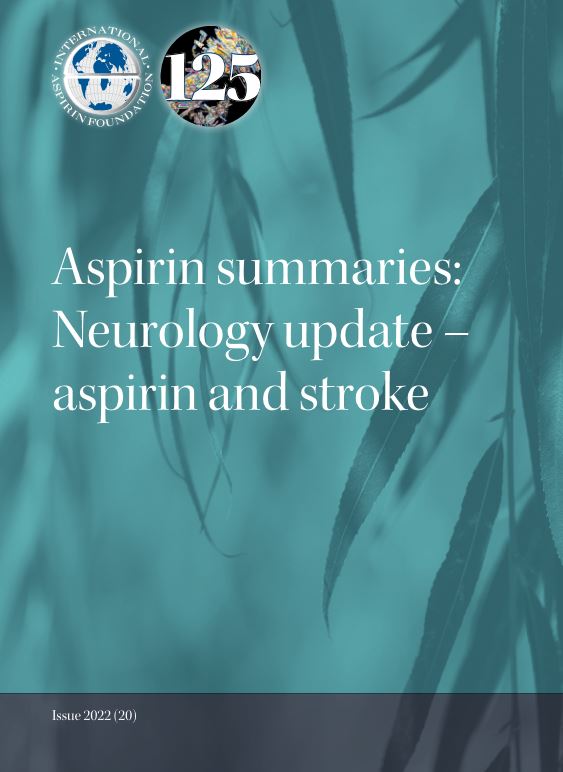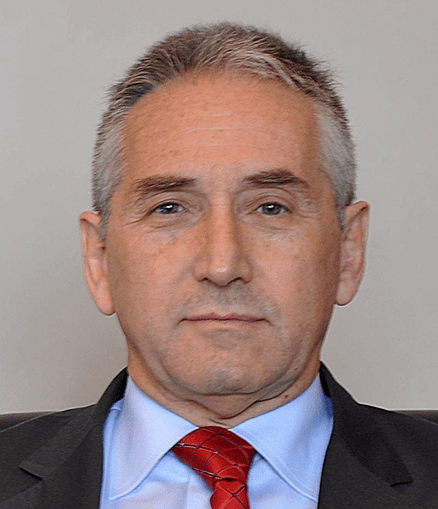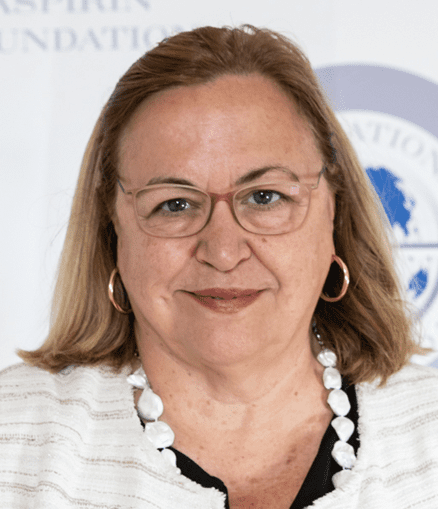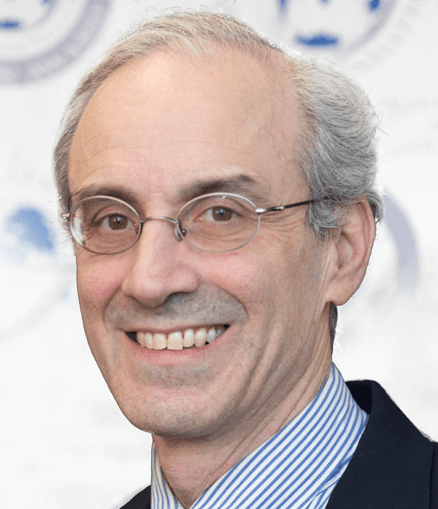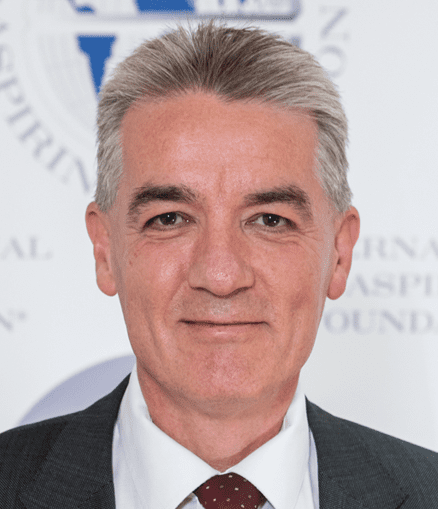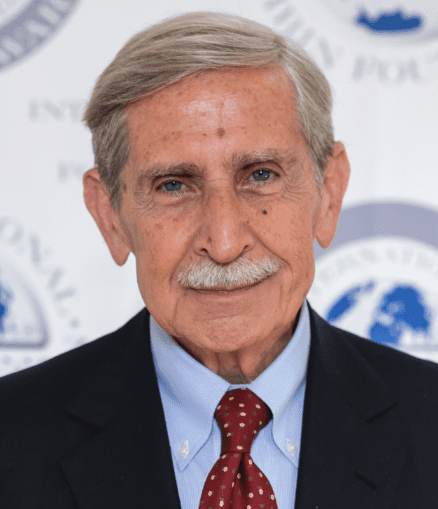Aspirin Summaries Issue 20 : Neurology update – aspirin and stroke
An ischaemic stroke is caused by a blockage to one of the arteries in the brain due to a blood clot. Guidelines support immediate antiplatelet therapy, with aspirin, to help prevent the formation of new clots and improve recovery and outcomes after a stroke1.
A major concern and consequence of stroke is long term disability which is linked to poor prognosis and quality of life as well as a high cost to society 2. Reducing the risk of recurrent stoke is an important objective for acute stroke management as this will reduce the level of overall disability experienced3.
Aspirin has been shown to reduce the risk of recurrent disabling stroke in the first 3 months following a TIA or ischaemic stroke4 and is a vital part of acute stroke or TIA management.
The summaries below look at current research articles in stroke management including the safety and efficacy of dual antiplatelet regimens.
References
1. Minhas JS, Chithiramohan T, Wang X et al. Oral antiplatelet therapy for acute ischaemic stroke. Cochrane Database of Systematic Reviews 2022, Issue 1. Art. No.: CD000029. Doi:10.1002/14651858.CD000029.pub4
2. Wang Y, Pan Y, Li H et al. Efficacy and safety of ticagrelor and aspirin in patients with moderate ischemic stroke. An exploratory analysis of the THALES randomised clinical trial. JAMA Neurol. 2021;78(9):1091-1098. Doi:10.1001/jamaneurol.2021.2440
3. Amarenco P, Denison H, Evans SR et al. for the THALES Steering COMMITTEE and Investigators. Ticagrelor added to aspirin in acute ischemic stroke or transient ischemic attack in prevention of disabling stroke. A randomized clinical trial. JAMA Neurol. 2021;78(2):177-185. doi:10.1001/jamaneurol.2020.4396
4. Rothwell PM, Algra A, Chen Z et al. Effects of aspirin on risk and severity of early recurrent stroke after transient ischaemic attack and ischaemic stroke: time course analysis of randomised trials. Lancet. 2016;388(10042):365-375. Doi:10.1016/S0140-6736(16) 30468-8
Oral antiplatelet therapy for acute ischaemic stroke – Cochrane Library
The purpose of this Cochrane review was to compare the efficacy and safety of antiplatelet therapy, such as aspirin, with placebo in the acute management of an ischaemic stroke in order to see if it reduced mortality and improved long-term outcomes. The aim of antiplatelet therapy is to reduce the amount of damage to the brain and reduce the risk of a recurrent stroke. The concern is that antiplatelet therapy could increase the risk of an intracranial haemorrhage which could result in death or disability.
The authors included 11 studies, with a total of 42,226 participants, conducted before August 2020 in the review. There was an equal mix of males and females, and a significant proportion of the participants were over 70 years. Most of the evidence included in the review was from aspirin studies.
The results show that aspirin (160-300 mg daily) if started within 48 hours of stroke symptoms reduced the risk of a recurrent ischaemic stroke within the first two weeks and reduced death rates and dependency levels. They also found a benefit if aspirin was started later than 48 hours but within two weeks. This was achieved without a major risk of bleeding in the brain.
The author states:
‘For every 1000 people treated with aspirin, 13 people would avoid death or dependency (number needed to treat for an additional beneficial outcome 79).’
For further information please see:
Minhas JS, Chithiramohan T, Wang X et al. Oral antiplatelet therapy for acute ischaemic stroke. Cochrane Database of Systematic Reviews 2022, Issue 1. Art. No.: CD000029. doi:10.1002/14651858.CD000029.pub4
Dual antiplatelet therapy (DAPT) for acute stroke – Ticagrelor added to aspirin
This evaluation of data from the Acute Stroke or Transient Ischaemic Attack Treated with Ticagrelor and Aspirin for Prevention of Stroke and Death (THALES) trial aims to compare ticagrelor plus aspirin with aspirin alone for reducing disabling recurrent stroke after an acute stroke or transient ischaemic attack (TIA).
The 11,016 participants with a noncardioembolic, nonsevere ischaemic stroke or high-risk TIA were randomised to receive either ticagrelor, at a loading dose of 180 mg within 24 hours of symptom onset and 90 mg twice daily thereafter, or placebo. All the participants were given aspirin at a dose of 300-325 mg on day 1 and 75-100 mg daily thereafter.
The results showed that ticagrelor plus aspirin significantly lowered the risk of recurrent stroke or death over the next 30 days (4.0% vs 4.7%) and this combination treatment also reduced the total disability burden. The number needed to treat (NNT) to reduce the risk of disabling stroke and death was 133.
The authors conclude:
‘In patients with TIA and minor ischemic stroke, ticagrelor added to aspirin was superior to aspirin alone in preventing disabling stroke or death at 30 days and reduced the total burden of disability owing to ischemic stroke recurrence.’
For further information please see:
Amarenco P, Denison H, Evans SR et al. for the THALES Steering COMMITTEE and Investigators. Ticagrelor added to aspirin in acute ischemic stroke or transient ischemic attack in prevention of disabling stroke. A randomized clinical trial. JAMA Neurol. 2021;78(2):177-185. doi:10.1001/jamaneurol.2020.4396
Efficacy and safety of DAPT for people with moderate ischaemic stroke
This post-hoc exploratory analysis of the THALES trial seeks to understand if aspirin plus ticagrelor for DAPT is beneficial to people who suffered a moderate acute ischaemic stroke. The authors explain that strokes of more moderate severity have a higher risk of poor outcomes when compared with those of lower severity and finding ways to manage this in the acute setting is therefore of interest.
The investigators found that although people who have a moderate ischaemic stroke (NHSS score 4 or 5) have a higher risk of recurrent stroke or death when compared with those who have had a less severe ischaemic event (NHSS score 0-3) the efficacy and safety of ticagrelor added to aspirin was similar. In this analysis of THALES, the primary efficacy outcome of time to recurrent stroke or death in the first 30 days, in those with an NHSS score of 4-5, had an event rate of 7.6% (129 of 1671) in the ticagrelor plus aspirin group and 9.1% (150 out of 1641) in the aspirin and placebo group. In the lower severity group (NHSS 0-3) the event rate was 4.7% (158 of 3359) in the DAPT group and 5.7% (190 out of 3312) in the aspirin plus placebo group. In the moderate stroke group severe bleeding occurred in 8 patients (0.5%) in the DAPT group and 4 patients (0.2%) in the aspirin plus placebo group. For those with less severe stroke 16 patients (0.5%) had a severe bleeding event in the DAPT group, and 3 patients (0.1%) experienced one in the aspirin plus placebo group. The dual combination therapy is therefore beneficial in both groups, being both safe and effective, and able to reduce the risk of a further disabling stroke.
The authors suggest that:
‘Patients with a moderate ischemic stroke had consistent benefit from ticagrelor plus aspirin vs aspirin alone compared with patients with less severe ischemic stroke, with no further increase in the risk of intracranial bleeding or other severe bleeding events.’’
For further information please see:
Wang Y, Pan Y, Li H et al. Efficacy and safety of ticagrelor and aspirin in patients with moderate ischemic stroke. An exploratory analysis of the THALES randomised clinical trial. JAMA Neurol. 2021;78(9):1091-1098. Doi:10.1001/jamaneurol.2021.2440
A meta-analysis of RCTs for DAPT versus aspirin in patients with stroke or TIA
This systematic review and meta-analyses looked at the efficacy and safety of DAPT versus aspirin alone after stroke or TIA. The primary safety outcome was risk of recurrent stroke, and the primary safety outcome was risk of bleeding. Secondary outcomes included risk of ischaemic stroke, haemorrhagic stroke, major cardiovascular events and all cause death.
The meta-analyses included four randomised controlled trails (FASTER 2007, CHANCE 2013, POINT 2018 and THALES 2020) and 21,459 patients. The first 3 of these trials use aspirin plus clopidogrel for DAPT and THALES uses aspirin with ticagrelor.
They found that DAPT resulted in a lower risk of recurrent stroke (RR, 0.76 [95% CI,0.68-0.83]; P<0.001; I2=0%), and a lower risk of major cardiovascular events and recurrent ischaemic events but that this was countered by a higher bleeding risk (RR, 2.22 [95% CI, 1.14-4.34], P=0.02, I2 =46.5%) when compared with aspirin alone.
The number needed to treat (NNT) to prevent an additional ischaemic stroke, using aspirin plus clopidogrel ranged from 21-58 and 78 when using DAPT with ticagrelor compared with aspirin monotherapy. The number needed to harm with a major bleeding event was between 40-186 in the FASTER and POINT trials for aspirin and clopidogrel patients and 221 for aspirin with ticagrelor in THALES. In CHANCE patients taking aspirin and clopidogrel had a lower bleeding event rate than the aspirin monotherapy arm. Overall, the absolute benefits of DAPT appear to be greater than the increased risk of bleeding.
The authors state:
“As compared to aspirin alone, short-term DAPT within 24 hours of high-risk transient ischemic attack or mild-moderate ischemic stroke reduces the risk of recurrent stroke at the expense of higher risk of major bleeding.”
For further information please see:
Bhatia K, Jain V, Aggarwal D et al. Dual antiplatelet therapy versus aspirin in patients with stroke or transient ischemic attack: meta-analysis of randomized controlled trials. Stroke. 2021. 52(6); e217-e233. https://doi.org/10.1161/STROKEAHA.120.033033
The impact of blood pressure control with DAPT for reducing recurrent stroke
In this post hoc analysis of 4781 participants from the POINT trial the investigators found that patients with a systolic blood pressure (BP) of less than 140 mm Hg benefitted more from 90 days of DAPT particularly in terms of recurrent stroke reduction than those with a systolic baseline BP of over 140 mmHg. Patients with a baseline systolic BP of 140 mm Hg or less taking DAPT had a reduced risk of recurrent stroke of 64% within 90 days of the first event compared with aspirin alone. However, if they had a baseline BP of more than 140 mm Hg no benefit for DAPT was found.
This, however, differs from findings in the CHANCE trial, where a significantly lower risk of recurrent stroke was only found in patients taking DAPT with a baseline systolic BP of 140 mm Hg or more
The authors conclude:
“Additional research is needed to replicate our findings and potentially test whether mild SBP reduction and DAPT within 12 hours of stroke lowers early risk of stroke recurrence.”
For further information please see:
De Havenon A, Johnston C, Easton D et al. Evaluation of systolic blood pressure, use of aspirin and clopidogrel, and stroke recurrence in the platelet-oriented inhibition in new TIA and minor ischemic stroke trial. JAMA Network Open. 2021:4(6): e2112551. Doi:10.1001/jamanetworkopen.2021.12551
Disclaimers:
• The information, views and opinions expressed are not endorsed or approved by members of The Scientific Advisory Board unless otherwise stated.
• The Information section is compiled using current published information at the time of writing and whilst every effort has been made to avoid errors, professional clinical judgement is required to interpret the information given. The information given is referenced clearly for further analysis as required.
• Every effort is made by the International Aspirin Foundation to see that no misleading or inaccurate data, statement or opinion appear. The International Aspirin Foundation cannot be held responsible for any errors or for any consequences arising from the use of the information.
• The International Aspirin Foundation, its associates and The Scientific Advisory Board accept no liability whatsoever for the consequences of any such inaccurate or misleading data, information, opinion or statement.
• Any information involving drug usage, should only be followed in conjunction with the drug manufacturer’s own published literature in their own country.
• Medical sciences evolve on a continual basis and therefore independent verification of the content should be made.
• The information, views, opinions and any other material provided should not be relied upon as a substitute to professional medical advice in relation to any medical condition. The International Aspirin Foundation, its associates and The Scientific Advisory Board accept no liability whatsoever for any consequences arising from any reliance placed on such information, views, opinions and other materials in lieu of professional medical advice.

